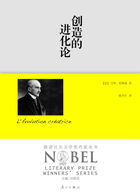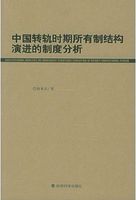For if we grasp the startingpoints of the accepted proofs on anysubject whatever we grasp those of the refutations current on thatsubject.For a refutation is the proof of the contradictory of a giventhesis,so that either one or two proofs of the contradictoryconstitute a refutation.We grasp,then,the number ofconsiderations on which all such depend:if,however,we grasp this,we also grasp their solutions as well; for the objections to these arethe solutions of them.We also grasp the number of considerations onwhich those refutations depend,that are merely apparent—apparent,Imean,not to everybody,but to people of a certain stamp; for it is anindefinite task if one is to inquire how many are the considerationsthat make them apparent to the man in the street.Accordingly it isclear that the dialectician”s business is to be able to grasp on howmany considerations depends the formation,through the common firstprinciples,of a refutation that is either real or apparent,i.e.
either dialectical or apparently dialectical,or suitable for anexamination.
It is no true distinction between arguments which some people drawwhen they say that some arguments are directed against the expression,and others against the thought expressed:for it is absurd tosuppose that some arguments are directed against the expression andothers against the thought,and that they are not the same.For whatis failure to direct an argument against the thought except whatoccurs whenever a man does not in using the expression think it tobe used in his question in the same sense in which the personquestioned granted it?And this is the same thing as to direct theargument against the expression.On the other hand,it is directedagainst the thought whenever a man uses the expression in the samesense which the answerer had in mind when he granted it.If now any(i.e.both the questioner and the person questioned),in dealingwith an expression with more than one meaning,were to suppose it tohave one meaning—as e.g.it may be that ”Being” and ”One” have manymeanings,and yet both the answerer answers and the questioner putshis question supposing it to be one,and the argument is to the effectthat ”All things are one”—will this discussion be directed any moreagainst the expression than against the thought of the personquestioned?If,on the other hand,one of them supposes the expressionto have many meanings,it is clear that such a discussion will notbe directed against the thought.Such being the meanings of thephrases in question,they clearly cannot describe two separate classesof argument.For,in the first place,it is possible for any suchargument as bears more than one meaning to be directed against theexpression and against the thought,and next it is possible for anyargument whatsoever; for the fact of being directed against thethought consists not in the nature of the argument,but in the specialattitude of the answerer towards the points he concedes.Next,allof them may be directed to the expression.For ”to be directed againstthe expression” means in this doctrine ”not to be directed against thethought”.For if not all are directed against either expression orthought,there will be certain other arguments directed neitheragainst the expression nor against the thought,whereas they saythat all must be one or the other,and divide them all as directedeither against the expression or against the thought,while others(they say) there are none.But in point of fact those that depend onmere expression are only a branch of those syllogisms that depend on amultiplicity of meanings.For the absurd statement has actually beenmade that the description ”dependent on mere expression” describes allthe arguments that depend on language:whereas some of these arefallacies not because the answerer adopts a particular attitudetowards them,but because the argument itself involves the asking of aquestion such as bears more than one meaning.
It is,too,altogether absurd to discuss Refutation without firstdiscussing Proof:for a refutation is a proof,so that one ought todiscuss proof as well before describing false refutation:for arefutation of that kind is a merely apparent proof of thecontradictory of a thesis.Accordingly,the reason of the falsity willbe either in the proof or in the contradiction (for mention of the”contradiction” must be added),while sometimes it is in both,ifthe refutation be merely apparent.In the argument that speaking ofthe silent is possible it lies in the contradiction,not in the proof;in the argument that one can give what one does not possess,it liesin both; in the proof that Homer”s poem is a figure through itsbeing a cycle it lies in the proof.An argument that does not failin either respect is a true proof.
But,to return to the point whence our argument digressed,aremathematical reasonings directed against the thought,or not?And ifany one thinks ”********” to be a word with many meanings,and grantedit in some different sense from the figure which was proved to containtwo right angles,has the questioner here directed his argumentagainst the thought of the former or not?














